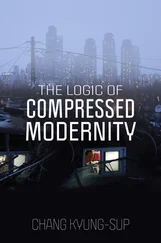But after Sylvie took an interest in her, she visibly softened; before, she was always quiet and kept to herself when not fighting, but now she sometimes helped the smaller girls carry the clean folded laundry back to the dormitories, or worked extra hours in the garden, and was particularly helpful in translating for Sylvie and the students during English classes, where she was easily the best speaker. Soon she was working a couple of hours each day in the Tanners’ quarters, sweeping and dusting and making the beds. There was always some group of children naturally clinging about Sylvie, but in the off-hours, well after supper or very early in the morning, when only Hector might catch sight of them, it was always just June who was with her, the two of them sitting on the stoop gently brushing each other’s hair, or else coolly whispering to each other like a pair of thieves.
One afternoon he saw Sylvie reading a book while he was clearing the underbrush as preparation to trench the new sewage pipe. She sat on a large rock that overlooked the lowland where he would install the septic piping and field. June was not with her. Reverend Tanner and the aunties had taken most all of the children, including June, on a trip to a waterfall and swimming hole. They had been gone all morning. When Sylvie saw him pause in his work she quickly waved to him, but then returned to her reading. He had no pretext for doing so and didn’t know what he would say, but he dropped the machete and hiked up to her. When he said hello she stood up and simply replied, “Hello there,” and to his relief didn’t ask what he wanted. She simply shut her book without marking the page and put it down on the rock. It was a slim blue volume that he’d seen her often reading and not always sequentially, as though she had read it many times over and could pick it up anywhere.
“I see you’ve started to dig for the pipe,” she said. She peered down the line he’d freshly cleared of brush, which easily ran over fifty meters. “Are you actually going to do the whole job by hand? Isn’t there a machine Ames can get to help you with it?”
“Not out here. It would cost too much, besides.”
“I’m sure you’re right.”
“You could help me.”
“I thought you never needed help with anything.”
He didn’t answer.
“Well, I’m glad you changed your mind.”
“It’s not going to be easy work. Not like the painting. The ground is mostly stone, and where it’s not stone, it’s hard-packed clay. Or maybe it’s all the same thing.”
“That almost sounds like a koan.”
“A what?”
“A koan. It’s a kind of a riddle, but one you keep saying to yourself. Buddhists use them to focus the mind.”
“You won’t want to focus, for work like this.”
She smiled at him. “I do feel like doing something difficult. Something strenuous. It’s been awfully quiet today. And, frankly, you look kind of lonely down there.”
“I’m all right,” he said.
“I’m sure you are. Shall we try it, then?”
“Okay.”
They went down to the head of the trench that he’d begun earlier. He had a pickax and shovel with him and held them out to her.
“Your choice.” She took the shovel and followed him down to the mouth of the trench; they would work from the empty new cesspool back up the slope. He hopped down into it and gestured for her to step clear, and he began working it, raising the pickax directly over his head and hammering it down on the dry, rocky ground. Once he warmed up he kept a steady cadence, the muted tremors of the blows lifting them imperceptibly off their feet. After he’d broken up a meter or so Sylvie stepped down and shoveled out the loosened earth and rock. The pile was denser than she expected and she had some trouble at first. Hector went to help but she told him she was fine and she speared furiously at the gravelly dirt. After she cleared it they switched, alternating several times until during her turn she suddenly stopped shoveling. She turned up her hands; several blisters had welled up on the pads of her palms and on one hand an especially large, angry blister bridged the space between her thumb and index finger. Hector told her she should stop and she nodded, but instead of going back to her cottage for a bandage she simply pinched the mass until it broke. She picked up the shovel again, wincing as she hefted it, and attacked the pile as before. She didn’t complain or hold back.
They worked for the better part of an hour in the high afternoon heat, the sweat completely soaking through Hector’s denim work shirt. Sylvie was flushed about the neck and cheeks, the delicate tendrils of her hair matted to her temples. The fabric of her blouse was a gauzy linen and with the angle of the sun he could see clearly her tan-colored brassiere and the dark nook of her arm and the smooth line of her torso as it led down to the spur of her high hip. She cleared as much as he loosened and they would each unconsciously extend their turn slightly and Hector finally had to tell her she should quit for the day when he saw the condition of her hands, several new blisters split open on each, the loose skin shredded and curled back to reveal the raw underlayers of her palms. She might not have agreed, but they heard the heaving clatter of a big diesel motor in the distance; it was the old transport truck the children had piled into this morning.
“I should go,” she said, pushing him the handle of the shovel. For a second he was sure she was going to lean up and kiss him on the cheek, but she simply touched his arm and then hurried up the gentle slope. When she just reached the top he saw that in her haste she had left her book on a nearby rock, but he didn’t call out, letting her disappear past the buildings to greet the children and her husband.
Sylvie worked herself hard every day. Reverend Tanner was on the road for a good part of each day, making visits to Seoul and other orphanages, and she was tireless in his stead, teaching and leading services and gardening and playing with the children until suppertime, when she’d disappear into the cottage without having eaten. The kitchen aunties whispered comments to one another about how she was losing weight and looking ragged. She’s going to get sick , one said. He expects too much of her , another replied.
But there’s so much to do! Can you blame him if he has a big heart?
His heart is big enough for everyone but his wife .
It was a hard-edged statement but once said it seemed true enough: Tanner was by any definition an admirable man, but one could see how his utter devotion to his missions-which obviously Sylvie had given herself over to completely-might leave none of their passions unspent. He wondered if this was the reason they didn’t have their own children, or if they now slept together at all. She had indeed grown thinner with the change in diet and the constant work, but it had seemed to Hector that there was a certain weathering in her eyes from the very first day, this eroded sheen. Hector had begun to linger outside his quarters, waiting for her to come out for a while before her husband returned in the mid-evenings. But she didn’t, never emerging until dawn. Whenever he worked on the trenching he kept checking the crest of the hillside for her. He kept on with the digging now, alternating between the pick and the shovel himself, loosening as much of the rocky earth as possible so that for long stretches he could toil in the belief that there was something of her sloughing off on him, this phantom print of her hand.
Before bringing it back to her that evening he had done the same with her book, pressing its rough pages against his cheek, smelling the tattered cloth cover, the nook of the spine. It was titled A Memory of Solferino , a translation from the original French. The author was a man named J. H. Dunant, a young French-Swiss banker who was traveling in northern Italy, a “mere tourist,” as he described himself, when he happened upon a massive conflict fought near a tiny hill town called Solferino. Hector flipped through the volume but it was dry and airless in the beginning, thick with names of foreign places and generals, and he was going to put it down when he came upon a passage well inside the book. It was the author’s account of the aftermath of a battle between two immense armies totaling 300,000 men, fought on the 24th of June, 1859, one army comprising the allies of France and the other the allies of Austria; the scene was a description of the wounded, crowded among scores of others in a church:
Читать дальше











